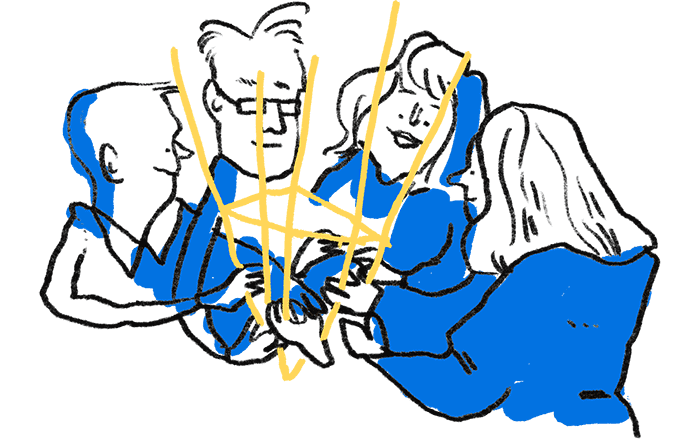Education offered by the Human Rights Office
The Human Rights Office provides staff and Reykjavík residents with a wide range of training on the City's Human Rights Policy and on human rights issues in general.
Examples of education offered:
- Reykjavík City Human Rights Policy
- Gender Equality
- Together Against Violence (Domestic Violence)
- Disabled People and Violence
- Immigration and Domestic Violence
- Queer People and Domestic Violence
- Can't you say anything anymore?!
- Transgender Children
- Workplaces and hiring through a gender lens
The list is not exhaustive.

Education offered
Reykjavík City Human Rights Policy
- The training is primarily for Reykjavík City staff. This covers different aspects of the Human Rights Policy and discusses examples that shed clearer light on the policy. The education is in lecture form and discussion is encouraged.
Gender Equality
- Is there such a thing as women's culture and men's culture? How does it manifest, and what impact does it have on workplaces? What do laws say about gender equality and what is the status of men and women in Iceland today? Education covering the status of genders, equality, and inequality. Presentation and discussions.
Together Against Violence (Domestic Violence)
- Education and introduction to the project "Together Against Violence," a collaboration between the Police in the capital area, Women's Shelter, Primary Care of the Capital Area, and City of Reykjavík. The goal of this collaboration is to increase knowledge sharing and improve practices for addressing domestic abuse cases.
Gender budgeting
- Education for staff involved in any way with the development of Gender Budgeting (KFD) within the City. This education covers what KFS is, how the project is organized, and our main tools for analysis related to KFS. Participants can also request education focused on specific aspects of KFS practice, such as equality impact screening.
Disabled People and Violence
-
The education discusses the prevalence and various manifestations of abuse against disabled people and how to prevent it. The goals are to inform about the situation of disabled people as a marginalized group and how this status can contribute to abuse against them. It also aims to inform about ways to provide increased protection against abuse for disabled people and how to respond when abuse occurs.
Immigration and Domestic Violence
- The education addresses the unique situation of immigrants in relation to domestic abuse, including the barriers faced by victims among immigrants. It also covers the prevalence of domestic abuse from the perspectives of victims and perpetrators in this group.
Queer People and Domestic Violence
- This education is intended for individuals working with victims and perpetrators of domestic abuse. The goal is to generally increase service providers' awareness about the situation of LGBT+ people and LGBT+ children in society. It covers unique manifestations of domestic abuse among LGBT+ individuals and children. By increasing awareness of the situation of LGBT+ individuals, we can provide better services to this group.
Can't you say anything anymore?!
- What jokes are okay? What is #metoo? And what is microagression? The lectures examines stereotypes, prejudices, and the position of different groups in society, especially in relation to working for the City of Reykjavík. The goal is to raise awareness about different social statuses, equality issues, and to improve communication.
Transgender Children
- The target audience for this education includes those working with children, aiming to make them aware of the small and vulnerable group of transgender children. The education covers key concepts related to the issue, the situation of transgender people with a focus on transgender children, the prejudice they face, and barriers in society. Additionally, it discusses how to provide support to transgender children. Checklists are introduced for schools, and other institutions working with children, on how to create a supportive environment for transgender children.
Workplaces and hiring through a gender lens
- Education specifically for managers and those involved in hiring. Job advertisements, laws on gender equality, and the effects that male- and female-dominated workplaces can have on the gender in the minority are examined. The influence of gendered ideas on the hiring process and how workplaces can be gendered and how to try to counteract this are looked into.
Contact us
For further information, contact the Human Rights Office.
Email: mannrettindi@reykjavik.is